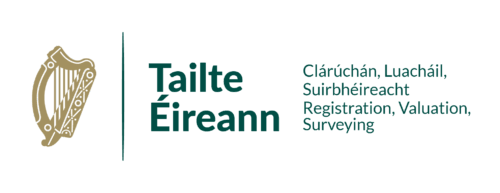
Job Details
Senior Executive Valuer
Job Responsibilities
The role of Senior Executive Valuer includes, but is not limited to, the following duties:
- Efficiently determining statutory valuations, including complex cases, in accordance with the Valuation Act 2001, (as amended), and in line with established valuation procedures, practices, and policies, with minimal supervision or support;
- Producing “Red Book” compliant valuations, including of complex assets, in accordance with the valuation procedures, practices, and policies in place, with minimal supervision or support;
- Overseeing colleagues, and direct engagement in the collection, recording, and analysis of relevant market transactions, data, statistics, and evidence, in line with the valuation procedures, practices, and policies, with minimal supervision or support;
- Preparing and presenting evidence and/or advocating in appeals before the Valuation Tribunal or other appeal/court fora, in accordance with valuation procedures, practices, and policies, with minimal supervision or support;
- Supporting the Valuation Manager and team members to ensure the delivery of high-quality valuations. This includes mentoring on both routine and complex casework;
- Conducting audit activities as required;
- Preparing and reviewing draft practice notes and instructions;
- Preparing and delivering presentations, and Continuous Professional Development (CPD) events related to property valuation;
- Training, mentoring and supervising other Valuer staff;
- Drafting responses and supplying material for correspondence, public representatives, and parliamentary questions in a timely and efficient manner;
- Developing and maintaining strong knowledge of relevant legislation, and the application of precedent, practice notes, and case law underpinning market valuation and rating principles;
- Building and maintaining a sound understanding of valuation methodologies, practice notes, relevant tribunal and court decisions, and applying these effectively to casework;
- Enhancing ICT, data, and analytical skills to support evolving Valuation practices;
- Meeting deadlines by applying efficient working methods, both individually and within the team, to the required quality standards;
- Managing and progressing multiple work activities simultaneously;
- Actively contributing to the achievement of corporate and business objectives in a positive, flexible, and constructive manner.
Note: This job description is subject to re-definition as part of ongoing reforms within the Public Service and change management initiatives within TÉ.
Job Requirements
On the closing date of Thursday, 16th October 2025, at 5pm, candidates must satisfy all the following requirements:
Essential Criteria:
- Hold a relevant academic qualification at minimum Level 8 on the National Framework of Qualifications or equivalent; and
- Have formally obtained a professional qualification of Chartered Surveyor or an equivalent professional qualification which is recognised by SCSI/RICS as equivalent to Chartered Surveyor; and
- Possess a minimum of four years’ experience working at a suitably senior level in the field of commercial property valuation; and
- Demonstrate a strong record of professional achievements to date; and
- The capacity to demonstrate to a high level the key competencies that have been devised for
posts at this level under the following headings, see Appendix A for more details:
1. Leadership;
2. Judgement, Analysis & Decision Making;
3. Management & Delivery of Results;
4. Interpersonal & Communication Skills;
5. Specialist Knowledge, Expertise and Self Development;
6. Drive & Commitment to Public Service Values.
Benefits & Compensation
Salary
The PPC (Personal Pension Contribution) salary for this position with effect from 1st August 2025 is as follows:
| 1 | 2 | 3 | 4 | 5 | 6 | 7 | 8 |
| €85,786 | €88,481 | €91,182 | €93,874 | €96,567 | €99,770 | €103,415
LSI 1 |
€107,064
LSI 2 |
Personal Pension Contribution (PPC)
The PPC pay rate applies when the individual is required to pay a Personal Pension Contribution (otherwise known as a main scheme contribution) in accordance with the rules of their main/personal superannuation scheme. This is different to a contribution in respect of membership of a Spouses’ and Children’s scheme, or the Additional Superannuation Contributions (ASC).
A different rate will apply where the appointee is not required to make a Personal Pension Contribution.
Long service increments may be payable after 3 (LSI1) and 6 (LSI2) years satisfactory service at the maximum of the scale.
